第68章
I am afflicted with a terrible malady, a cruel moral malady. In my soul are feelings and in my mind convictions which make me utterly unfit for what the State and society demand of me. This may seem to you ingratitude; it is only the statement of a condition. When I was twelve years old you, my generous god-father, saw in me, the son of a mere workman, an aptitude for the exact sciences and a precocious desire to rise in life. You favored my impulse toward better things when my natural fate was to stay a carpenter like my father, who, poor man, did not live long enough to enjoy my advancement. Indeed, monsieur, you did a good thing, and there is never a day that I do not bless you for it. It may be that I am now to blame; but whether I am right or wrong it is very certain that I suffer. In making my complaint to you I feel that I take you as my judge like God Himself. Will you listen to my story and grant me your indulgence?
Between sixteen and eighteen years of age I gave myself to the study of the exact sciences with an ardor, you remember, that made me ill. My future depended on my admission to the Ecole Polytechnique. At that time my studies overworked my brain, and I came near dying; I studied night and day; I did more than the nature of my organs permitted. I wanted to pass such satisfying examinations that my place in the Ecole would be not only secure, but sufficiently advanced to release me from the cost of my support, which I did not want you to pay any longer.
I triumphed! I tremble to-day as I think of the frightful conion (if I may so call it) of brains delivered over yearly to the State by family ambition. By insisting on these severe studies at the moment when a youth attains his various forms of growth, the authorities produce secret evils and kill by midnight study many precious faculties which later would have developed both strength and grandeur. The laws of nature are relentless; they do not yield in any particular to the enterprises or the wishes of society. In the moral order as in the natural order all abuses must be paid for; fruits forced in a hot-house are produced at the tree's expense and often at the sacrifice of the goodness of its product. La Quintinie killed the orange-trees to give Louis XIV. a bunch of flowers every day at all seasons. So it is with intellects. The strain upon adolescent brains discounts their future.
That which is chiefly wanting to our epoch is legislative genius.
Europe has had no true legislators since Jesus Christ, who, not having given to the world a political code, left his work incomplete. Before establishing great schools of specialists and regulating the method of recruiting for them, where were the great thinkers who could bear in mind the relation of such institutions to human powers, balancing advantages and injuries, and studying the past for the laws of the future? What inquiry has been made as to the condition of exceptional men, who, by some fatal chance, knew human sciences before their time? Has the rarity of such cases been reckoned--the result examined? Has any enquiry been made as to the means by which such men were enabled to endure the perpetual strain of thought? How many, like Pascal, died prematurely, worn-out by knowledge? Have statistics been gathered as to the age at which those men who lived the longest began their studies? Who has ever known, does any one know now, the interior construction of brains which have been able to sustain a premature burden of human knowledge? Who suspects that this question belongs, above all, to the physiology of man?
For my part, I now believe the true general law is to remain a long time in the vegetative condition of adolescence; and that those exceptions where strength of organs is produced during adolescence result usually in the shortening of life. Thus the man of genius who is able to bear up under the precocious exercise of his faculties is an exception to an exception.
If I am right, if what I say accords with social facts and medical observations, then the system practised in France in her technical schools is a fatal impairment and mutilation (in the style of La Quintinie) practised upon the noblest flower of youth in each generation.
But it is better to continue my history, and add my doubts as the facts develop themselves.
When I entered the Ecole Polytechnique, I worked harder than ever and with even more ardor, in order to leave it as triumphantly as I had entered it. From nineteen to twenty-one I developed every aptitude and strengthened every faculty by constant practice.
Those two years were the crown and completion of the first three, during which I had only prepared myself to do well. Therefore my pride was great when I won the right to choose the career that pleased me most,--either military or naval engineering, artillery, or staff duty, or the civil engineering of mining, and /ponts et chaussees/.[*] By your advice, I chose the latter.
[*] Department of the government including everything connected with the making and repairing of roads, bridges, canals, etc.